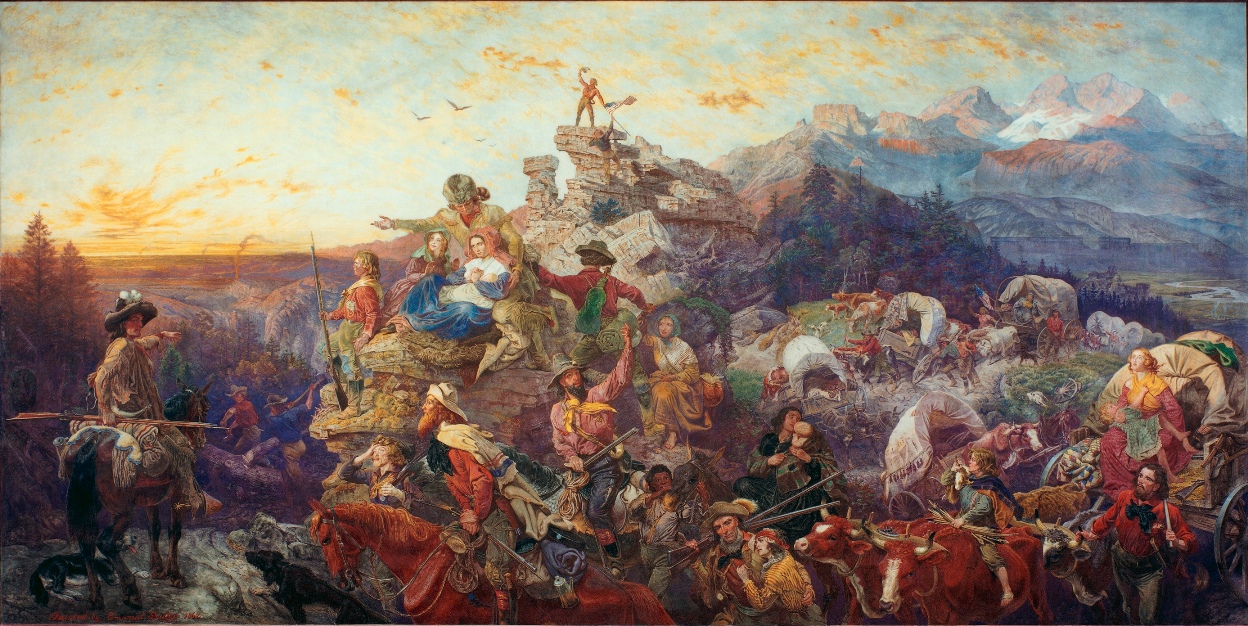
Emanuel Leutze, Westward the Course of Empire Takes Its Way, United States Capitol
 Emanuel Leutze, Westward the Course of Empire Takes Its Way, United States Capitol |
By the 1830s the notion that America was destined to absorb the whole of the West of the continent, as well as its core, was taking hold. This was a religious impulse as well as a nationalist and ideological one - a feeling that God, the republic, and democracy alike demanded that Americans press on west, to settle and civilize, republicanize and democratize. In 1838 an extraordinary essay in the Democratic Review, entitled 'The Great Nation of Futurity,' set out the program:
The nation of many nations is destined to manifest to mankind the excellence of divine principles: to establish on earth the noblest temple ever dedicated to the worship of the Most High - the Sacred and the True. Its congregation shall be the Union, comprising hundreds of happy millions, calling and owning no man master, but governed by God's natural and moral law of equality, the law of brotherhood - of 'peace and goodwill among men.' Henry Wadsworth Longfellow |